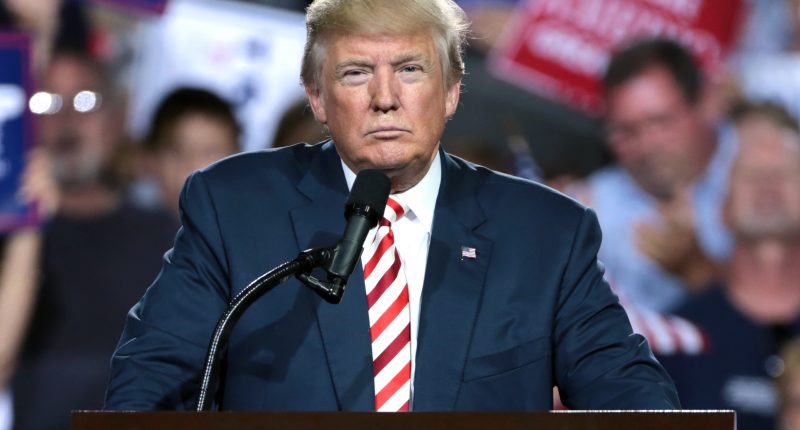Former President Donald Trump is not one to accept defeat easily, as is evident from his reactions after he was defeated in the United States Presidential election, 2020. This time, he is taking action against three of the biggest names in the tech and social media sector – Facebook, Twitter, and Alphabet’s Google – as the former president has filed class-action lawsuits against the three companies and their CEOs (Mark Zuckerberg, Jack Dorsey, and Sundar Pichai) for banning him from their platforms.
Facebook, Google, and Twitter declined to comment on the matter.
At a press conference in Bedminister, New Jersey, Trump said that he demanded an end to the “shadow banning, a stop to the silencing, a stop to the blacklisting, vanishing and canceling.” He argued that banning him from social media and suspending his accounts amounted to an infringement on the First Amendment’s guarantee that speech would not be curtailed by the government.
He said that he was going to hold big tech very accountable, adding that he wanted the court “to order an immediate halt to social media companies” for censoring the American people. “We are demanding an end to the shadow-banning, a stop to the silencing, and a stop to the blacklisting, banishing, and canceling that you know so well,” Trump said.
It is certainly not the first time that Trump has threatened legal action or sued people, but he has rarely actually followed through in terms of winning a judgment or even taking cases to trial. The current lawsuits, which seek court orders to restore Trump’s social media accounts, along with imposing punitive damages on the three social media giants, aim to ensure other users cannot be banned or flagged by the tech giants.
Additionally, the lawsuits want the court to declare that Section 230 of the Communications Decency Act, a piece of legislation that stops tech companies from being held liable for what users post on their platforms, is unconstitutional. Trump, in his crusade against tech giants, had more than once called for the repeal of Section 230 and had in 2020 signed an executive order to curtail the legal protections offered to social media companies from liability for content on their platforms. President Joe Biden later revoked the executive order.
During his tenure as President, Trump had used Twitter for a varied range of reasons, from insulting his rivals to unveiling major policy announcements.
This marks the latest development in Trump’s crusade against social media giants Facebook and Twitter over free speech and censorship. Trump’s Twitter account was blocked and he has been banned completely from Twitter following the US Capital riots in January, and he is banned from Facebook for another two years. Even YouTube leaped into the fray as it froze his account following the riot. The ex-president’s videos are still accessible, but he isn’t permitted to post new videos. According to YouTube, the company will reverse its policy when it decides that the “risk of violence has decreased,” without providing details.





